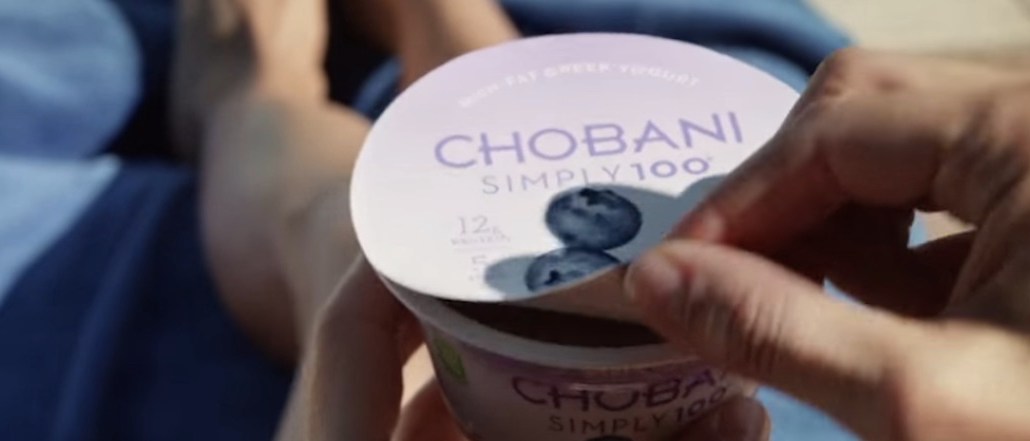Save 50% on a 3-month Digiday+ membership. Ends Dec 5.
With founder under fire for employing refugees, Chobani gets brand boost from supportive customers

Customers are rallying to support Chobani after its founder started receiving death threats for employing refugees.
On Monday, the New York Times published a piece about Chobani founder Hamdi Ulukaya, a Turkish immigrant who employs 2,000 people in a factory in upstate New York. Many of those employees are refugees, and Ulukaya has made advocating for the resettlement and employment of immigrants and refugees a personal crusade. The Times piece detailed how, on social media and on right-wing websites, there are now calls to boycott Chobani. Both Ulukaya and the mayor of Twin Falls, New York, where the factory is based, have received death threats.
But instead of boycotts, Chobani is getting support.
Adding @Chobani to weekly shopping list. “@NBCNews: Chobani gets threats, calls for boycott for employing refugees https://t.co/BvTV8uUpbC “
— Lillian Carilo (@lcarilo) November 2, 2016
Data crunched by Brandwatch found that Chobani has in the last few days enjoyed a positive sentiment of 55.3 percent. Negative mentions are actually focused on “drowning out” messages of hate — those against refugees or those calling for boycotts. There were 16,300 mentions of Chobani in the last three days alone.
The brand also has hashtags like #RefugeesWelcome and #BuyChobani trending. Here’s how impressions stack up.
That might, at least in the short run, also translate into sales — at least until next week, when “something else will show up” to occupy the American electorate, according to Robert Passikoff, president of consulting firm BrandKeys.
Chobani, which does all of its marketing in-house, declined to comment.
Ad position: web_incontent_pos1
It’s just the latest example of brands getting caught in political scuffles in this particularly divisive presidential election. (See also: Skittles.) But Chobani has been active in this arena since long before the election cycle. It was when Ulukaya spoke at Davos about how brands could help refugees that his stance became more public. Companies like IBM and Salesforce wrote pledges to help resettle refugees and offer employment opportunities.
If Ulukaya’s stumbled anywhere, said Passikoff, it was going almost too public with his point of view. “One needs to draw a line in the sand with brands and social change,” he said. Ulukaya, despite a yearslong support for refugees, could have continued along less publicly. “He can do all of this without linking it to Chobani,” he said. “Creating fissures in a consumer base is never good.”
Boycotts have also come from the other end of the political spectrum. Yuengling Brewery’s owner, Dick Yuengling, this week endorsed Donald Trump for president, leading to — you guessed it — a wide-ranging backlash against the brand. Bars in Philadelphia (the brand is based in East Norwegian Township, Pennsylvania) as well as gay bars across the country stopped carrying the brand, and on social media, many faithful fans vowed to never drink the brand again. There were also boycotts threatened.
For Chobani, the issue plays into its progressive brand image. Ulukaya himself is an immigrant, who has used his background as part of the PR image for the company. Earlier this year, he announced he would give employees 10 percent ownership in the company — part of a well-discussed philosophy that companies have a moral obligation to help their employees lead better lives. And he has in the past announced plans to donate much of his wealth to refugees. In some ways, Ulukaya’s story is inextricably linked to Chobani’s brand as a modern, transparent and moral company.
But that can be, ironically, a bad thing. “No company hasn’t seen what happens when companies publicly make political statements whether they intend to or not,” said Passikoff.
More in Marketing

Ulta, Best Buy and Adidas dominate AI holiday shopping mentions
The brands that are seeing the biggest boost from this shift in consumer behavior are some of the biggest retailers.

U.K. retailer Boots leads brand efforts to invest in ad creative’s data layer
For media dollars to make an impact, brands need ad creative that actually hits. More CMOs are investing in pre- and post-flight measurement.
Ad position: web_bfu
